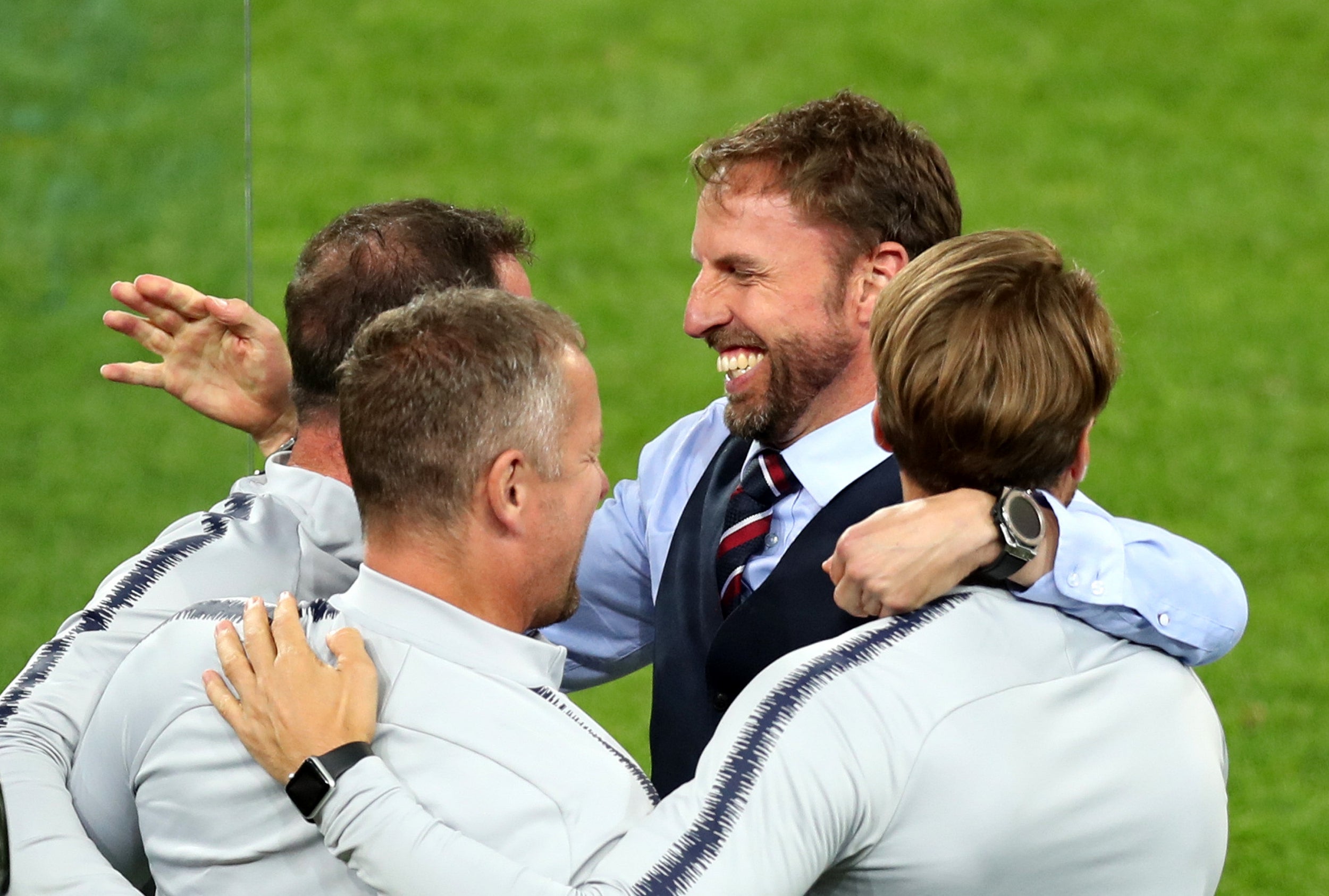World Cup 2018: How Gareth Southgate’s willingness to confront England’s limitations paid off
It is the recognition that England might not be that good and that England wouldn’t be one of the best four or five teams in Russia which has driven Southgate's winning process
To Sweden, then. Or to Samara, where England will travel on Friday morning after barely one training session to face Sweden in the game of their lives.
For this young team that has captured the imaginations of those back home, it might already represent an overachievement to have got this far, to the final eight of the World Cup.
It is as far as any England team has got in 12 years, when the country’s so-called ‘golden generation’ flamed out in consecutive quarter-finals against Brazil and then Portugal. This is Sweden though, ranked 24th in the world and deemed underdogs by virtually everybody. Everybody, that is, except Gareth Southgate.
“Now we have a chance to reassess and it will be a tough game for sure,” he said, still basking in the afterglow of a penalty shootout victory over Colombia.
“Sweden are often underestimated and I have real respect for Sweden. They are always more than the sum of their parts.
“Our historic record against them is another one we have to put right. But I think we have always viewed them at our level and I don’t think that’s right because their tournament record is better than ours.
“Playing against them is really difficult.”
The most striking thing to many might be that Southgate has pegged England firmly as the underdog, but really what impresses is that he is already so deeply aware of what the Swedes will bring to the table.

Southgate also spoke of the consistency among Swedish youth ranks, their style of play and what to expect as he rattled off a brief mental dossier on England’s next opponents. The analysis that seeps from every conversation with the England manager is not just a man who has done his homework but who has spent months and untold resources being as prepared as humanly possible for these moments.
Southgate has been keen to learn from other sports and it was legendary basketball coach John Wooden who said “success is a lot of little things done well.”
That mantra fits so perfectly with Southgate’s England and it becomes evermore obvious every time he speaks just how prepared he is, from the list of penalty takers that had been decided for weeks, to the scientific methods used to select them to the ball-striking coach brought in to improve those players’ chances of winning a shootout.
Asked about his team’s lack of goals from open play and reliance on set-pieces, again it became obvious just how much the England camp have relied on data and strategy as much as the players executing their roles.
“We know in knockout games that set plays are an even higher percentage than normal ones,” Southgate reeled off without thinking. “So it still has to be an area of focus for us at both ends.
“I think our style of our football gets us the free kicks and gets us the corners.
“In the end teams are stopping us by fouling us and it’s great if we are able to punish them like that. So we can’t overlook the fact we are controlling games and so composed from the back in playing out that we are making teams work extra hard and get dragged out of place and then they are having to dive in and make challenges they don’t want to.”
Even as Southgate headed for the team coach and flight back to Repino, his last words were concerns about the players’ sleep patterns given they would be returning to base around 6am, by which time the sun would have been up for nearly four hours. There is no detail, it appears, that England have not considered, and it might be the most endearing thing about this team.
Because for all the exuberance of youth and this overachievement – they really were targeting 2022 for World Cup success – it is the humility of Southgate and his coaching team which drives everything.
It is the recognition that England might not be that good and that England wouldn’t be one of the best four or five teams in Russia which has driven the process he so often references and every pillar of that – the data analysis, the focus on set-pieces, the detailed scouting of every possible opponent, the conservative yet adaptable formation.
It is the acknowledgement that England might not be that good which might just have made them good. Quarter-final good. Maybe semi-final good?
Looking to go one step further than the golden generation who weren’t as good as they thought, it might be that this current iteration of England, it’s bold, lovable future, got so good by admitting that they weren’t the most talented or the most experienced. They have instead found a formula where preparation is key, where hard work of repetition is prioritised over reputation, and where every minuscule edge that can be found has been identified and implemented.
Join our commenting forum
Join thought-provoking conversations, follow other Independent readers and see their replies
Comments
Bookmark popover
Removed from bookmarks